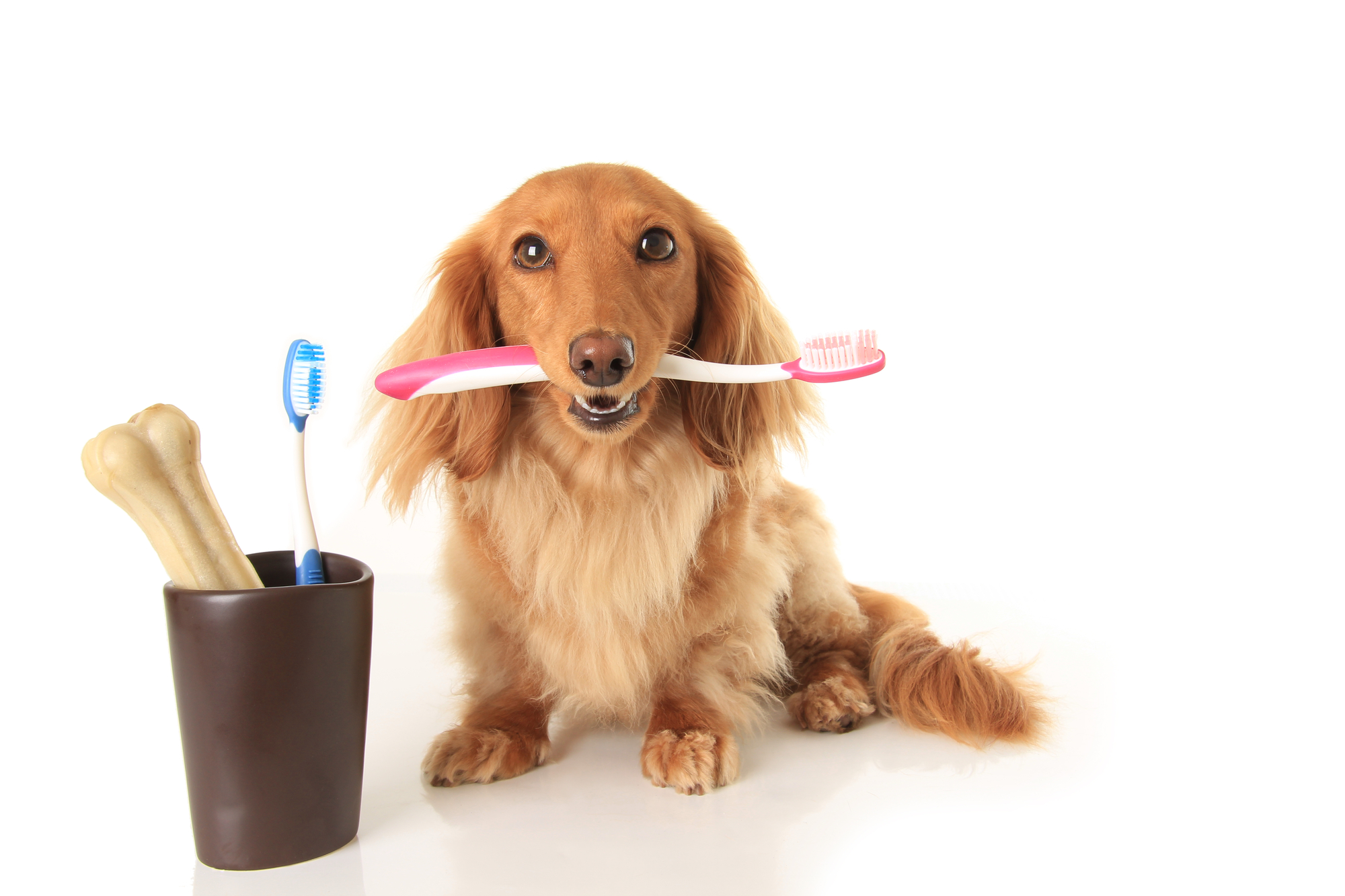
Dental Care for Your Pets
How to Keep Your Pet’s Mouth Healthy
Your pet’s oral health matters. That’s why the AVMA (American Veterinary Medical Association) created National Pet Dental Health Month. This month-long holiday reminds pet parents to care for their pets’ teeth and gums. Want to learn how you can do that? Get started by reading this article!
Why Does Your Pet’s Oral Health Matter?
Why your pet’s dental care is important – it’s an important part of essential dog care and essential cat care. A healthy mouth contributes to overall good health. But problems like gingivitis and periodontal disease can cause serious issues. Examples include heart disease, lung disease, and kidney disease. Sadly, VCA claims that, “Over 80% of dogs over the age of three have active dental disease.” VCA also says that, “More than half of all cats over the age of three have some form of dental disease.” Those staggering percentages reveal the importance of dental care. Failing to address this need results in unwanted health consequences.
What Causes Dental Disease?
You may have heard that too much bacteria leads to dental disease, but not all bacteria are bad. Some are actually necessary for good health. If that’s the case, what’s the real source of the problem? It’s a disruption in your pet’s bacterial balance. This disruption reduces bacteria diversity. The bad bugs then take over and wreak havoc on your pet’s mouth. If left unchecked, this imbalance causes dental disease. So, plaque isn’t to blame for our pets’ mouth woes. Rather, it’s a bacterial imbalance in the plaque that causes the trouble. That trouble may start in the mouth, but it won’t necessarily end there.
What happens if you ignore pet dental issues? As your pet’s bacterial population grows, some bacteria are forced to leave the mouth. They travel to your pet’s organs. This can possibly lead to other diseases.
How to Keep Your Pet’s Mouth Healthy
Now you know why oral health is so important. But how do you care for your fur baby’s mouth? Let’s go over some of your options.
Brush Your Pet’s Teeth
Most experts suggest brushing our pets’ teeth every day. But if you’ve never done this before, don’t just stick a toothbrush into your pet’s mouth. Instead, start by getting your pet used to having your finger in its mouth. Then you can try using a finger brush and toothpaste.
Important Note: Don’t use brushes with sticks. They can cause gum injuries. And don’t use your own toothpaste on your four-legged pal. Find a pet-specific product instead.
All that being said, we should mention that not everyone agrees with brushing. According to Dana Scott, from Dogs Naturally Magazine, brushing might do more harm than good. Why? Scott claims that brushing disrupts bacterial populations. This gives the bad bugs a chance to take over.
Encourage Dental Chews
Dental chews are pet treats that are made to reduce plaque. If you try this option, carefully choose the right brand. Look for products that have short ingredient lists and are made of high-quality ingredients. But keep in mind, the plaque itself might not be the cause of dental disease. If that’s true, dental chews probably aren’t very effective.
Get Professional Cleanings
Have your pet’s teeth gotten way out of hand? Then you may need to make an appointment with your veterinarian. Your veterinarian will examine your pet’s mouth and conduct a teeth cleaning.
Maintain A Healthy Diet
Feeding your pet well results in good oral health. But what does a healthy diet look like? For dogs and cats, it’s a meat-based diet. No matter which pet food brand you choose, real meat should always top the ingredient list. After meat, you don’t want to see a lot of harmful ingredients on the list. Examples of pet food ingredients to avoid include:
· Corn
· Wheat
· Meat meals
· Grain meals
· Food dyes
· Artificial preservatives
Is wet or dry food better for pet dental care? It’s a common belief that dry food will help keep your pet’s teeth clean. But that’s an overstatement. While dry food can help reduce tartar, it can’t prevent dental disease. Pets that live on dry food are no better off than pets that eat canned food.
Add Probiotics To Your Pet’s Diet
Remember, dental disease is caused by a bacterial imbalance. That’s why probiotics might be an effective way to prevent oral problems. Either add a probiotic supplement to your pet’s meals or spray it into your pet’s mouth. You can find out more about this strategy here.
In Conclusion
Keeping your pet’s mouth healthy is crucial for overall health. That’s why you must take good care of your pet’s teeth and gums. If you can accomplish that, your furry friend is far more likely to enjoy good health. And that’s certainly worth the extra time and effort any day!
About the Author:
Savanna Westwood
Savanna Westwood is the Owner and Founder of The Savvy Sitter, Pet Sitting and Dog Walking, LLC. She has grown up with animals all her life and enjoys spending time with them. Savanna has lived in the Winter Garden and Windermere Area for over 30 years. When she is not taking care of Fur Friends, one can find her reading, practicing archery, riding, and devising ways to provide additional and excellent services to clients. Savanna is a Certified Professional Pet Sitter with Pet Sitter International's CPPS certification and also holds certification in Pet First Aid and CPCR for Pet-Care Professionals.

